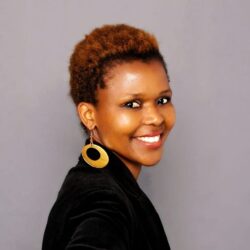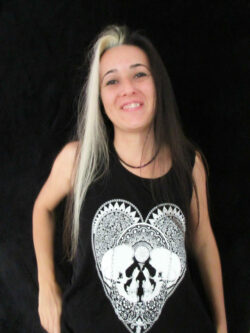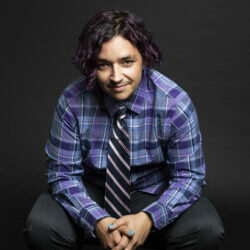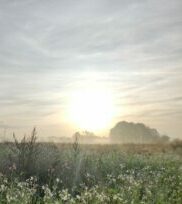Skills and understanding for building effective collective power
We are living through a period of historical disruption. The stalled engine of neoliberal growth, an increasing sense of distributive injustice, bankrupted political leadership, and the “fierce urgency of [the ecological] now”, are the cracks in a failing system. They are also the spaces that have opened up in which our social movements can contest our future. This training explores key skills and organisational structures needed to rise to this challenge.
What is Leaderful Organising?
Leaderful organising sits within a broad theory of change that sees the building of collective power and agency as a key driver of social transformation towards greater social justice and ecological integrity. Organising is the activity of building that collective power and agency.
It aims to address the challenges involved in bringing together the best aspects of leadership with the best aspects of more horizontal ways of organising. It includes both a critique of traditional leadership and power, as well as a critique of leaderlessness and the limitations of merely horizontal forms of organising. It seeks to nurture the qualities of responsibility, initiative and accountability in individuals, while honouring the values of solidarity, inclusion, mutual empowerment and equity.
The practices of leaderfulness draw on renewed and expanded notions of leadership, such as the idea of “group-centered leadership” articulated by Ella Baker, who was critical of a leadership style which tends to centralize power, decision making and responsibility for meaningful action in a single leader. She claimed that “Strong people don’t need [a] strong leader”.
Leaderfulness goes beyond leadership as merely the quality of individuals, to engender a culture of leaderfulness in which power is distributed appropriately and all members of an organisation or network are supported to grow into leaderfulness. In addition to supporting the acquisition of leadership qualities by individuals, a leaderful culture requires structures and systems that enable the distribution of power and influence – and nurture leaderfulness in us all. These structures and systems are rooted in the values of solidarity or what the systems scientist Donella Meadows calls ‘going for the good of the whole’.
“Go to the people, learn from them. Live with them. Love them. Start with what they know. Build with what they have. The best of leaders when the job is done, when the task is accomplished, the people will all say we have done it ourselves.” – Lao Tzu
We will explore ideas and practices related to:
The aims of the training are:
So, the workshop will help participants to:
“Leadership is accepting responsibility for enabling others to achieve purpose in the face of uncertainty.” (Marshall Ganz)
Who is it aimed at?
Anyone involved in socially engaged action addressing ecological, political and social justice issues. We embrace a broad definition of activism, including: Resistance – action preventing further damage to ecosystems and social justice; Renewal – action focused on developing and creating alternatives for healthier societies and communities; and Building Resilience – action supporting increased resilience in communities to weather the uncertain times ahead.
In the solidarity economy:
(See details of our approach to radical economics here)
Contact us
to apply

Location:
Nontokozo says: I have always been passionate about building community, inner engineering, group dynamics, motivating and empowering others. I enjoy tackling women issues, building bridges of hope and healing between Africa & Europe and beyond, I love sharing knowledge on conscious living, advocating for climate and social justice, and regenerative education. My work includes education on diversity and racism awareness. I am a firm believer of UBUNTU an Indigenous African Knowledge System – “I am because we are”. I am committed to creating safe spaces and holistic events for individuals and group processes, to support in achieving desired goals and creating a common vision, using indigenous wisdom, processwork facilitation and other methodologies.’

Location:
Hilal Demir, an anarcha-queer DJing at home is an activist, trainer, facilitator for 20 + years and has experience on organizing, strategizing on nonviolent direct action, campaign and social movement levels, working with power, active solidarity, resilience, repression and security. She is passionate about leading informal learning experiences, community organizing, group dynamics and organisational cultures, supporting activists and organizations to build long lasting transformative social movements for a just future.

Location:
Kyle Sawyer (they/he) is an anti-oppression facilitator and educator specializing in working with individuals and organizations on how to turn privilege into change. He is a trans, queer, mixed-race, white-passing individual. With over a decade of experience Kyle founded Building Allies in 2013 and developed the term Active-Ally, someone who witnesses injustice and responds to it in any situation. Kyle has worked with teachers, nonprofit organizations, students, therapists, social workers, community members, family members, and many others on learning how to be Active-Allies through an intersectional lens.

Location:
Mika (she/they): Woven with the seeds of my white migration family stories, I joined my first grassroots group 25 years ago. Today, I am a trainer and facilitator as part of the Berlin-based collective Movement School – Bewegungsschule (https://bewegungsschule.org/)

Location:
An Maeyens (she/her) is a facilitator and trainer with over two decades of experience in grassroots movements. She specialises in creative, inclusive agenda design and brings deep expertise on group culture, power dynamics, and transformative learning. Starting of in the anti-globalisation movement she has trained thousands in civil disobedience, supported international coalitions, and developed multilingual training programmes and toolkits. Her work spans movements, cultures, and countries, guided by a commitment to care, accessibility, and leaderful organising.

Location:
An Maeyens (she/her) is a facilitator and trainer with over two decades of experience in grassroots movements. She specialises in creative, inclusive agenda design and brings deep expertise on group culture, power dynamics, and transformative learning. Starting of in the anti-globalisation movement she has trained thousands in civil disobedience, supported international coalitions, and developed multilingual training programmes and toolkits. Her work spans movements, cultures, and countries, guided by a commitment to care, accessibility, and leaderful organising.

Location:
Ari’s activism began in 2002, at age 16, as a Bosnian refugee in Canada, where they founded and coordinated a group for LGBTIQ high school students and allies. They were a co-founder and leader at kolekTIRV in Croatia and Trans Network Balkan, involved in community organizing, advocacy, program management, team coordination, capacity building, education, media work, campaigns, events, fundraising, etc. In 2024, they joined the Supervisory Board of the Croatian Trade Union Collective of United Precarious Workers and Activists (SKUPA).
Beyond the Balkan region, Ari served as a Board member at Transgender Europe (TGEU), where they held roles as Secretary, Treasurer, and later Co-chair. They have also been a trainer with the Center for Artistic Activism and served on the Advisory Committee and since 2022 as a Community Care Facilitator at FRIDA — The Young Feminist Fund. Since 2024 they are the Operations Manager at Global Philanthropy Project.

Location:
Sergio (all pronouns) was born in Romania and migrated to Germany in the early 2010s. In the past, he was a social worker with homeless people and a social consultant for Eastern European migrants for various organisations. Trained as a filmmaker, he spent two years making a documentary about the ‘civic reawakening’ in Romania and the waves of protest it brought with it. In connection to this, Sergio is currently co-steering the development of an online open-source participative knowledge production platform on activism in Romania. Over the past nine years, Sergiu has offered his skills to various journalists, grassroots collectives and campaigns, mostly working within the labour rights, climate justice, international solidarity and anti-authoritarian movements in Germany and Romania. Nonetheless, his biggest focus since 2020 has been his work as an organiser with the anarcho-syndicalist Free Workers Union, where he focuses mostly on organising Romanian migrant workers on construction sites, in factories and in the agricultural field.

Location:
Linzy Na Nakorn is a movement director, politicised somatics practitioner, community organiser and facilitator. For the past decade she has been facilitating movement, body work and creating theatre, dance and participatory performance that advocates for and organises with communities in pursuit of housing, disability and racial justice. Her movement practice focuses on trauma-informed approaches to building resilience, capacity and joy via way of the body for personal, interpersonal and community sustainability. Linzy was a Co-Director of The Big Ride for Palestine in partnership with The Gaza Sunbirds, Native Woman Ride and Middle East Children’s Alliance; using cycling as a tool for mobilising active solidarity and in support of campaigning for the rights and self-determination of the Palestinian people. Linzy is part of a UK network of activists and artists advocating for Radical Care – supporting organisations, researchers and institutions to work towards system change in societal approaches to labour, leadership and access.

Location:
Jeroen (he/him pronouns) has been involved in grassroots social movements for more than two decades now, starting back when he was fifteen. Throughout the years the fights for “climate justice” and “migrant justice” have been consistently on top of the list of struggles that make his heart beat faster. A key transformative moment for Jeroen was reading Paulo Freire’s Pedagogy of the Oppressed. Freire’s revolutionary pedagogy gave him a language to support the creation of emancipatory learning environments, rooted in a desire for collective liberation. Jeroen has also been exploring in depth Boal’s Theatre of the Oppressed and Joanna Macy’s The Work That Reconnects among other methodologies to build his trainer’s toolkit. Inspired by the liberatory possibilities of these traditions, he started an organization with a friend, LABO vzw, based in Belgium, where he has worked as a trainer and campaigner between 2013 and 2023.

Location:
Ella brings more than 10 years’ external experience working with not for profit and community based organisations across diverse themes including: advocacy for migrant communities; local community engagement in national policy making; and structural relationships between poverty and disenfranchisement, and education and poverty. Immersed in critical theory in her early 20s she brings a holistic and questioning approach, and is passionate about systemic solutions that centre relationship and interconnection between ecology and society. A long standing member of the collective, Ella has been part of the core team since the inception of the Ulex Project. Her work bridges facilitation, developing project partnerships, governance, strategy, operations, and project and programme evaluation. She has developed and overseen more than 70 partnerships with a range of different actors across European social movements.
Ulex: Latin (argelaga Catalan, gorse English) noun:
1. A thorny-evergreen flowering shrub, with a high capacity for regeneration and resilience. Its seedpods open in contact with fire and it reshoots from charred stumps. A successionary plant that grows well under challenging conditions. It improves soil fertility through nitrogen fixing, preparing the way for renewed biodiversity.
2. A traditional choice for igniting fires. Burns hot and bright.
3. A networked project adding nutrition and fertility to European social movements through training and capacity building. It kindles the realisation of social justice, ecological intelligence, and cognitive vitality.